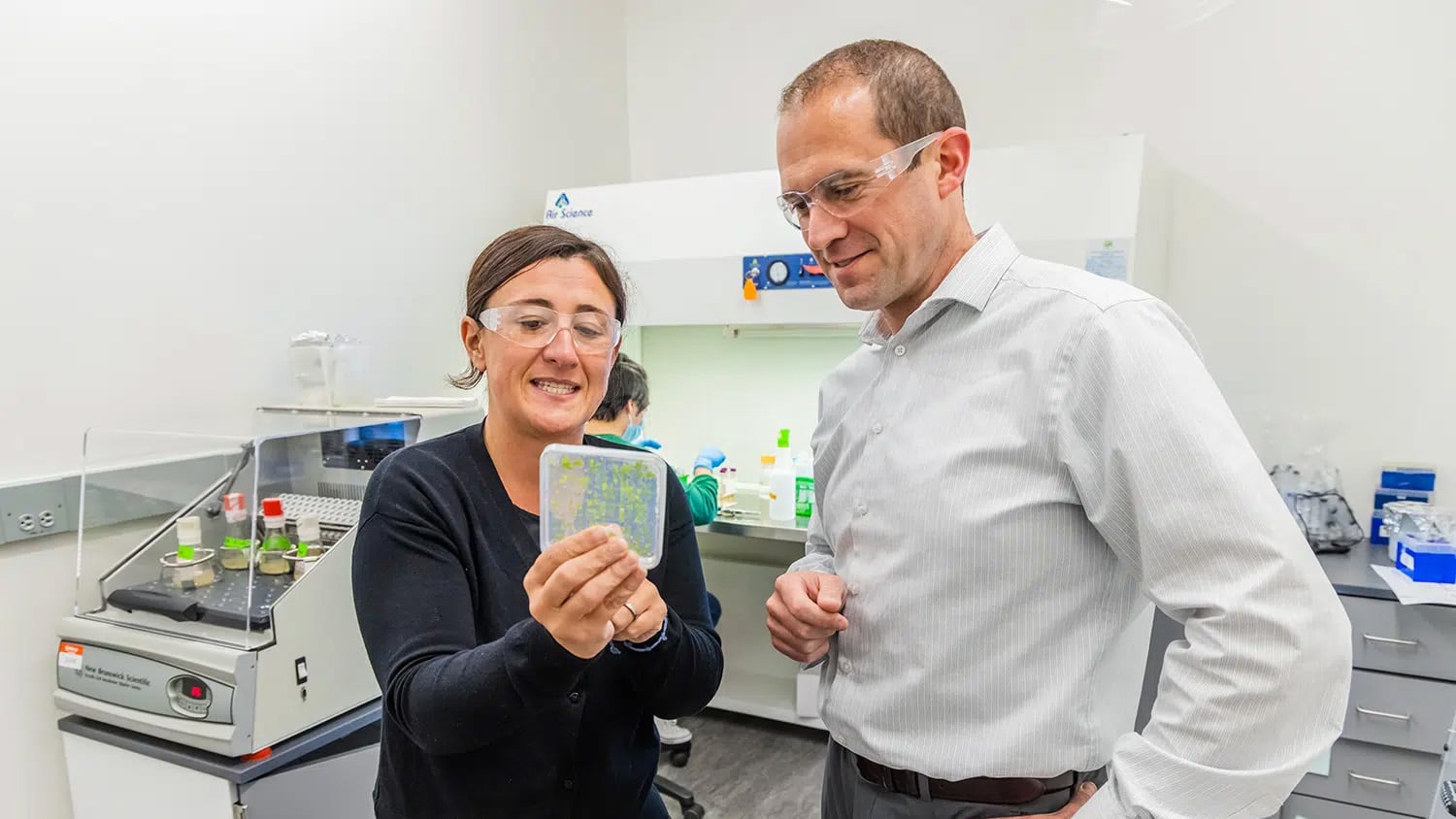A Model Approach
Dr. Julie Ivy wants everyone to spend less time and money on their health care.
So when she learned that hospitals were having a difficult time deciding how much medication to order she knew there had to be a better way to manage the inventory. Without a solution, hospitals could continue to spend lots of money on medication that wound up in trash bins or become inundated with sick people and not enough drugs to treat them.
Ivy, above at right, is one of about 20 NC State faculty members and graduate students in the Edward P. Fitts Department of Industrial and Systems Engineering working in the emerging field of health systems engineering. These researchers strive to make health care more organized, efficient and cost-effective—results that keep patients healthy and save everybody money.
They think of health care as an interconnected system, focusing on health care delivery and medical decision-making. They’re advising doctors on the right times to prescribe medication; finding the most efficient cancer-screening methods; and, thanks to a $1.6 million grant from the Centers for Disease Control and Prevention, improving North Carolina’s Health Alert Network, a system that keeps health workers on the same page during statewide health emergencies.
Systems for Success
Students interested in the field are gaining hands-on experience in the department’s health systems engineering concentration, established in 2009. This certificate program, led by Dr. Stephen Roberts, the A. Doug Allison Distinguished Professor in Industrial and Systems Engineering, provides students with a paid mentored internship at a sponsoring health organization.
The need for expertise is growing as U.S. health care costs for prescription medication, hospital care, doctors’ fees and other services continue to rise.
Health systems engineers look for ways to give patients, doctors and hospitals the most bang for their health care buck. Quantitative modeling, a method using mathematical equations to predict behavior and simulate health care-related situations, plays a major role.
“With simulation, we try to create a computer model of the particular system, whether it’s a pharmacy or a laboratory,” Roberts said. “Then we experiment with it to find a better system.”
Ivy’s work with NC State alumna Dr. Anita Vila-Parrish, teaching assistant professor and director of undergraduate programs in the department, holds promise for improving inventory management policies at hospitals.
“You can get what you need, at the best possible price, when you need it,” said Ivy, associate professor of industrial and systems engineering.
Timing the Treatment
The engineers are also interested in the early detection of different types of cancer. Ivy, Roberts and Dr. Brian Denton, associate professor of industrial and systems engineering, are comparing screening methods for breast, colorectal and prostate cancer, respectively. They’re looking at screening times, frequencies and costs, all geared toward finding the most efficient way to catch the diseases early.
Denton is also using modeling to show how heart disease progresses in patients affected by a condition that causes more deaths per year than breast cancer and AIDS combined—diabetes.
Her research with doctoral student Jennifer Mason focuses specifically on patients living with type 2 diabetes. Their recent work revealed that only 48 percent of patients who were prescribed statins to lower cholesterol and reduce the risk of heart disease and stroke—were taking the prescribed dose regularly after one year.
For diabetics, who are at particularly high risk for heart attack and stroke, the findings underscore how important it is to stick to their medications.
Results like these give patients, policy makers and hospital staff vital information that can save time, money and lives.
“There’s going to be an increasing need for people who look at these systems of health care,” Roberts said. “And NC State engineers will be prepared for the job.”
- Categories:


